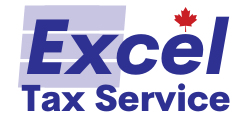Annual Newsletter 2021
The past year has been a challenging one and we would like to send our warmest thoughts to everyone who has been impacted directly or indirectly by this terrible virus.
As the Covid-19 pandemic continues, we want to assure you that you can keep counting on us to be here with safety procedures to keep our customers and employees safe. So, in our continued effort to reduce the spread of the virus, we have implemented some convenient and secure ways to get your tax documents to us and sign your documents all from the safety of your home.
Here are a few improvements:
- Secure portal to upload your confidential documents
- Electronic signature software
- Secure electronic copy of your tax return
- How-to videos with helpful tips
Our front door will be locked, but we will continue to be available to you by phone or email with our usual extended Tax Season hours.
For customers who prefer to drop off their documents, we want you to know that our drop slot is secure and available 24/7. We also offer curbside pick up and signing, call us when you arrive and please stay in your car.
The tax season has always been a time for us to get together, but in these extraordinary times, that means staying apart as much as possible. So, while we are not able to see you in-person in our office, we want you to know that our dedicated staff are standing by to take your questions over the phone or by email. Whether it is relating to arranging a pick-up, or how to pay your taxes, we are here for you – no matter what. Please reach out to us.
We want to thank you for the trust you have placed in us and we will do everything possible to provide you with the exceptional level of service you deserve.
We wish you and your loved ones a safe and healthy 2021!
Get organized and let us do the work
We want to make sure you get every deduction and tax credit you are entitled to. Keep reading for easy to use organization tips:
- How-to videos
- Income Tax Checklist:
- Easy to use forms:
- Rental Income
- Self-employment Income
- Employment Expenses
Forms are also available by email or curbside pick-up.
Will you owe taxes this year?
Many Canadians experienced a reduction of income relying on emergency benefit payments during 2020, so tax return figures may look very different than in previous years. If you typically received refunds in the past you may be surprised with a tax bill this year.
It may not seem like a big tax issue when your income declines. You would think that if income declines, taxes should decline too. However, the situation may be more complicated.
For those who received emergency benefit payments, no income tax was withheld at source. With childcare facilities closed, work travel halted and medical services like dentistry on hold, the corresponding tax deductions or credits may be lower. This combination could mean a higher tax bill.
Your income tax owing is due by April 30th, regardless of when you file your tax return. So don’t put off filing your return, file well ahead of the April 30th deadline, if you do owe taxes, you will have plenty of time to plan your payment or arrange a payment plan with the Canada Revenue Agency.
Lifelong Learning Plan (LLP)
Looking to upgrade your skills or change your career? Consider making a tax-free withdrawal from your RRSP to finance your tuition. The LLP allows you to withdraw up to $10,000 per year and $20,000 over a four-year period from your RRSP to finance full-time training or education. Individuals with a mental or physical disability may still participate in the plan even if they are not registered on a full-time basis.
To find out more about your eligibility and repayment plan go to Canada.ca and search RC4112.
Working from home?
$400 max flat rate or detailed method, which is right for you?
As a result of Covid-19, many people have been working at home and using their kitchens, bedrooms, and living rooms as their workspace. In response, the Canada Revenue Agency (CRA) has introduced a new temporary flat rate method to simplify claiming the deduction for home office expenses for the 2020 tax year.

If you worked more than 50% of the time from home for a period of at least four consecutive weeks in 2020 due to the Covid-19 pandemic, you can claim $2 for each day you worked from home during that period. You can then also claim $2 for any additional days you worked at home in 2020 due to the pandemic. The maximum you can claim for the temporary flat rate method is $400 per individual (i.e. 200 days).
The T2200 form, Declaration of Conditions of Employment, is now available in a much shorter simplified version called T2200S. Your employer will only have to confirm that you worked at home due to the pandemic and whether or not you were reimbursed for any costs.
Employees who earn commission and pay rent may have larger claims. If you have a larger claim you can still choose to use the detailed method to calculate your employment expenses, get a completed and signed form T2200S or T2200 from your employer and keep receipts to support your claim.
For more information on how to use the detailed method, watch our how-to video at ExcelTaxService.ca/videos
Tuition Tax Credit -T2202 Post-Secondary Education
The T2202 tuition certificate will be available on student accounts by February 28th.
Tuition tax credits help lower the amount of tax you have to pay. If you do not use all of your tuition credits, up to 5,000 credits can be transferred to a spouse, parent or grandparent.
Unused tuition credits will carry forward indefinitely and can be applied to future tax returns to save you money.
Principal Residence Exemption
The principal residence exemption is a very attractive feature of the Canadian tax system, as it allows a capital gain realized on the sale of a principal residence to be earned free from tax, provided the residence was designated as the taxpayer’s principal residence for every year of ownership.
The CRA will only allow the principal residence exemption if you report the sale and designation of principal residence on your income tax return. If you forgot to report the sale of your principal residence, you can amend your return, please contact us for more information.
Medical Expenses
People usually don’t know that their medical expenses can give them significant tax credits. Anything from health insurance premiums to prescription medication (but not vitamin supplements) can count toward medical expenses. If those expenses are higher than three percent of your annual income and you are taxable, then there’s a possibility for tax savings. It is really important that you keep every receipt because every dollar counts.
Students and low-income individuals may qualify for the refundable medical expense supplement.
For a complete list of eligible medical expenses visit Canada.ca
TAX TIP
Visit your pharmacy for a free annual summary and print your insurance claims summary.
Home Accessibility Expenses
If you incur eligible expenses of up to $10,000 to renovate or modify your home to increase the mobility or safety of a senior or an individual who is eligible for the Disability Tax Credit, you can claim the Home Accessibility Tax Credit. This non-refundable tax credit can reduce your tax payable up to $1,500.
Disability Tax Credit (DTC) – T2201
Do you or a family member have a prolonged impairment?
- ADHD
- Addiction
- Anxiety
- Alzheimer
- COPD
- Depression
- Dementia
- Difficulty Walking
- Eating Disorders
- Hearing Impaired
- Irritable Bowel
- Learning Disability
- Mental Illness
- OCD
- Parkinson’s
- Physical Disability
- PTSD
- Sleep Disorder
- Scoliosis
- Vision Impaired
You may be eligible for the Disability Tax Credit.
The DTC amount is a non-refundable tax credit used to reduce your income tax payable on your income tax return. If you do not need the DTC to reduce your income tax payable, the credit can be transferred to a spouse or common-law partner or someone else.
Canada Training Credit
Starting in 2020, eligible individuals who were enrolled at eligible educational institutions can claim this new federal refundable tax credit on tuition and fees associated with training.
To be eligible for the Training Credit, workers must:
- Be between 25 and 64 years of age.
- Have at least $10K in earnings from work in the preceding year (including maternity/parental leave benefits).
- Have an income below $150K.
- Have filed a tax return in the preceding year.
- Have been resident in Canada throughout the preceding year.
This annual credit began accumulating on your 2019 tax return and is subject to a cumulative amount of $250 per year, $5,000 maximum lifetime tax credit. Your Canada training credit will be communicated to you on your annual notice of assessment.
Can someone else sign my income tax return?
If you want someone such as your spouse, common law partner, a family member or a friend to sign your tax return, you must authorize this person to be your legal representative.
A legal representative is an executor and/or someone with a power of attorney. We can help you advise the CRA of your legal representative, please call us for more information.
Why do I need to keep my Notice of Assessment?
The Notice of assessment (NOA) is issued by the Canada Revenue Agency after your tax return has been processed:
- Shows whether you are getting a refund or owe taxes
- Proof of income (needed for mortgage, divorce, child support)
- Displays your legal name
- Shows your RRSP contribution room, tuition carryforward credits, home buyers plan schedule, and unused Net Capital Losses
The NOA is an important document. Keep it for your records.
Protect yourself against fraud
Beware of scammers posing as CRA employees and demanding immediate payment.
The CRA will never:
- Ask for your credit card number, bank account number, or passport number
- Leave voicemails that are threatening or give personal or financial information
- Set up a meeting with you in a public place to take a payment
- Demand payment by e-transfer, bitcoin, prepaid credit cards, or gift cards
- use aggressive language or threaten you with arrest or sending the police
When in doubt, contact us, we are open year-round and always here to help you.
Our Tax Season Hours
Got Tax Questions?
Important dates – 2021
February
- Feb 22nd – CRA opens e-filing services
- Feb 28th – T4 and T5 slips issued by today
March
- Mar 1st – RRSP contribution deadline
- Mar 15th – First tax instalment deadline
- Mar 31st – T3 slips sent out by today
April
- Apr 2nd – Good Friday. Excel Tax is closed today
- Apr 30th – Tax filing deadline Self-employed deadline to pay tax owing and HST
May
- May 1st – Late filing penalties and interest begin
June
- June 15th – Self-employed tax filing deadline Second tax instalment deadline
September
- Sep 15th – Third tax instalment deadline
December
- Dec 15th – Fourth tax instalment deadline



 New Customers Welcome
New Customers Welcome